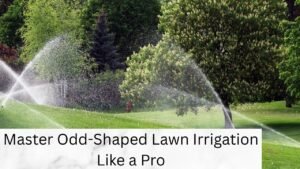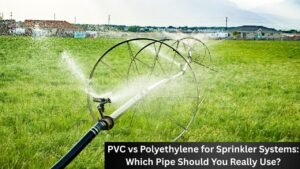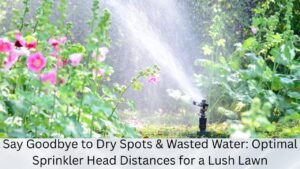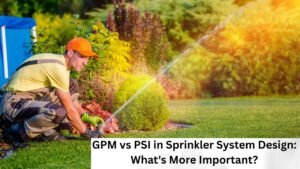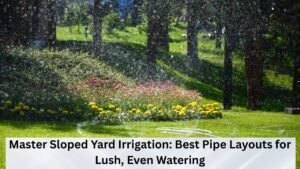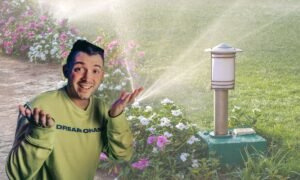When planning a garden or lawn irrigation system, one critical question often arises: How long do sprinkler systems last? This query is crucial for homeowners in Wichita, Kansas, who want to ensure their investment remains efficient and effective for years.
In this comprehensive guide, we’ll delve into factors that affect the lifespan of sprinkler systems, how to maintain them for longevity, and when to consider repairs or replacement.
Factors Affecting Sprinkler System Lifespan
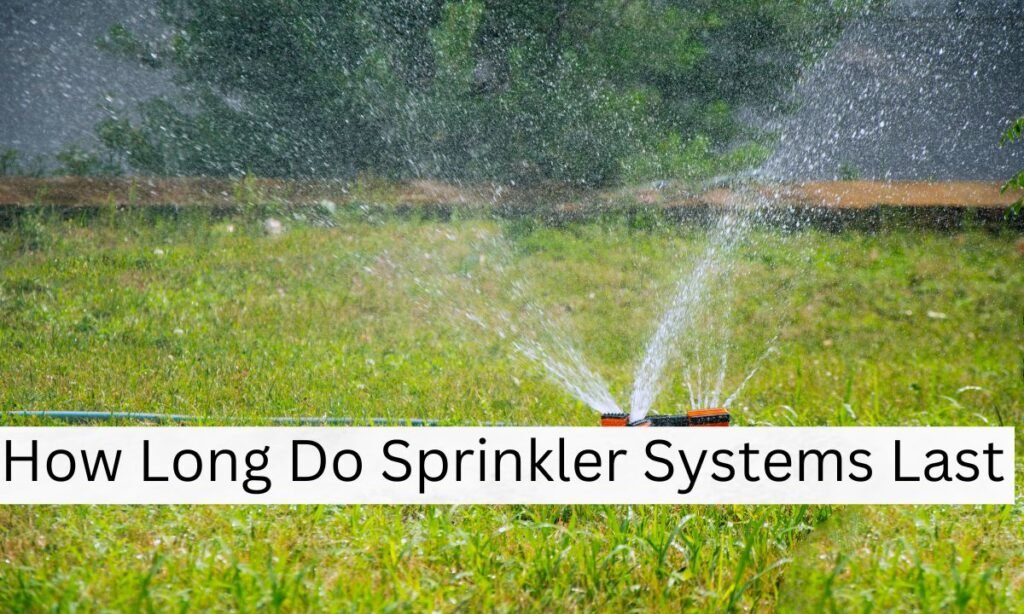
Climate and Temperature Fluctuations
Wichita’s climate poses unique challenges for sprinkler systems. With hot, dry summers and freezing winters, your sprinkler system endures considerable stress. Extreme temperature fluctuations cause expansion and contraction in pipes and components.
During summer, intense heat can make pipes and joints brittle, while winter’s freeze-thaw cycles can lead to cracks and leaks. Proper installation and maintenance are crucial to withstand these temperature extremes and extend the system’s life.
Water Quality and Hard Water Issues
The water quality in Wichita significantly impacts the lifespan of sprinkler systems. Hard water, which is high in minerals like calcium and magnesium, can lead to scale buildup inside the system.
This buildup clogs nozzles and reduces water flow, causing inefficiencies. Regular water quality testing can help identify issues, and installing filters or water softeners can mitigate the effects of hard water on your sprinkler system.
Installation Quality
A well-installed sprinkler system can last much longer than one with installation flaws. Ensuring that pipes are correctly aligned, connections are sealed, and high-quality materials are used from the start can prevent common issues such as leaks and blockages. Working with a reputable sprinkler system installer who understands the specifics of Wichita’s climate can enhance the system’s durability.
Maintenance Practices
Regular maintenance is key to prolonging the life of your sprinkler system. Essential maintenance tasks include:
- Winterization: Properly preparing your system for winter to prevent freeze damage.
- Flushing: Removing debris and mineral buildup by flushing the system with water or a cleaning solution.
- Inspections: Routinely checking for leaks, damage, and other issues to catch problems early.
Neglecting these tasks can lead to premature system failure and costly repairs.
Material Quality
The materials used in your sprinkler system play a significant role in its longevity. Common materials include PVC and metal:
- PVC Pipes: While affordable and resistant to corrosion, PVC can become brittle and crack over time, especially with extreme temperature changes.
- Metal Components: Generally more robust, but they can rust and corrode if not maintained properly.
Choosing high-quality, weather-resistant materials tailored to Wichita’s climate can help ensure a longer-lasting system.
Average Lifespan of Sprinkler Systems in Wichita
Industry Standards
Typically, a well-maintained sprinkler system can last between 15 to 20 years.
This estimate is based on standard industry practices and assumes regular maintenance and prompt repair of any issues.
Local Data
In Wichita, the lifespan of sprinkler systems can vary due to local factors such as climate and water quality. Homeowners who invest in quality materials and follow diligent maintenance practices may see their systems approaching the upper end of this range. Conversely, those who neglect maintenance may experience shorter lifespans.
Signs of a Failing Sprinkler System
Visual Indicators
Common signs that your sprinkler system may be failing include:
- Broken Heads: Damaged or malfunctioning sprinkler heads that fail to distribute water evenly.
- Leaks: Visible water pooling around the system or wet spots on your lawn.
- Uneven Watering: Areas of your lawn that receive too much or too little water.
These signs indicate underlying issues that need addressing to prevent further damage.
Performance Issues
Performance problems can also signal system failure:
- Low Water Pressure: Reduced pressure can affect watering efficiency and may indicate a problem with the system.
- Clogged Nozzles: Blockages that prevent proper water distribution.
- System Malfunctions: Any irregularities in system operation that affect performance.
Maintenance Tips for Long-Lasting Systems
Regular Inspections
Conducting routine inspections is essential for maintaining a healthy sprinkler system. Check for leaks, damaged components, and ensure that the system operates as intended. Early detection of issues can prevent costly repairs and extend the system’s life.
Winterization
The YouTube video below: How to Winterize Your Sprinkler System | A DIY Guide by MrFixItDIY provides straightforward steps for preparing irrigation systems for freezing weather. It covers draining water lines, shutting off valves, and protecting components, making it a reliable visual guide for homeowners tackling winter prep on their own.
In Wichita’s cold winters, winterizing your sprinkler system is crucial:
- Turn Off the Water Supply: Locate and shut off the main water valve to the system.
- Drain the System: Open all drain valves to let water escape. For systems without manual drains, use an air compressor to blow out remaining water.
- Flush with Cleaning Solution: Use a mild cleaning solution to remove any debris and prevent clogs.
- Insulate Exposed Pipes: Wrap exposed pipes with insulation to prevent freezing.
- Protect Valves: Cover any exposed valves with weather-resistant materials.
Repair and Replacement
When deciding between repair and replacement:
- Repair: Opt for repairs if the issue is minor, such as a broken head or small leak.
- Replacement: Consider replacing components or the entire system if the damage is extensive or the cost of repairs is high.
Evaluate the cost and extent of damage to make an informed decision.
Professional Maintenance
Hiring a professional for regular maintenance can be beneficial. A qualified technician can perform thorough inspections, address complex issues, and ensure your system is functioning efficiently.
Cost Considerations
Repair Costs
Minor repairs, such as fixing broken heads or clearing clogs, generally cost between $75 and $200. More significant repairs, like valve replacements, can range from $200 to $500 or more, depending on the complexity.
Replacement Costs
Replacing an entire sprinkler system can range from $2,000 to $5,000. Costs depend on factors like system size, materials, and labor. Obtain quotes from multiple contractors to ensure you get the best value.
Cost-Benefit Analysis
Investing in regular maintenance and timely repairs can save money in the long run by preventing costly replacements and ensuring your system operates efficiently.
Addressing Common Misconceptions
A common misconception is that sprinkler systems can be left unattended during mild winters. However, even during mild weather, proper winterization is crucial to avoid damage from unexpected temperature drops. Ensuring your system is prepared for all weather conditions is essential for maintaining its longevity.
Frequently Asked Questions
Conclusion
Understanding the factors that influence the lifespan of your sprinkler system and taking proactive steps for maintenance can significantly extend its life. Regular inspections, proper winterization, and timely repairs are crucial for keeping your system in top shape. For personalized advice and expert assistance, contact a local sprinkler service in Wichita.
Don’t wait for problems to arise—schedule a professional inspection today and ensure your sprinkler system remains efficient and reliable. By staying on top of maintenance and addressing issues early, you can enjoy a well-watered, beautiful lawn year-round.
